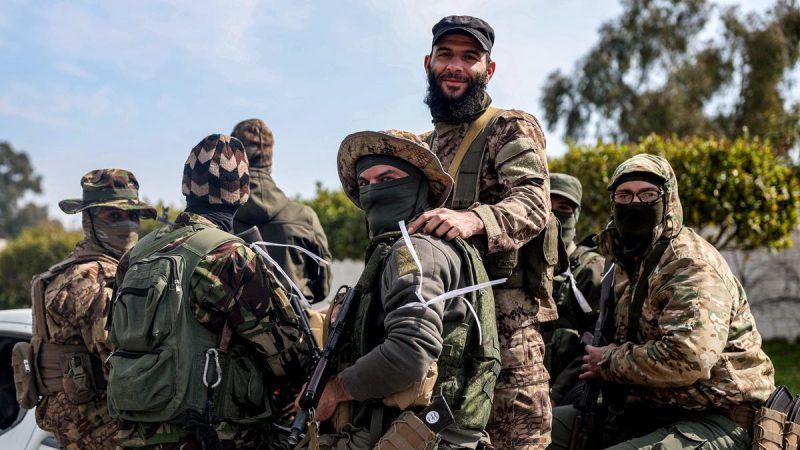Israeli and Turkish warplanes skirmished over Syria this past weekend.
Israel, in northern Syria, has been bombing militias affiliated with the government of Turkey. According to Turkish media sources, Ankara’s F-16s sent ‘warning messages’ to the Israeli planes.
Israel denied the reports of the aerial confrontation.
Recep Tayyip Erdogan, Turkey’s president, said that the ‘Israeli attacks compromise the balance in the region since the fall of the Syrian regime.’ Bashar al-Assad fled Syria to Russia as his totalitarian government fell in early December. He has since been granted asylum there.
The recent aerial confrontation could spark a wider war and put an end to attempts by the former militant and Syria’s current president, Ahmed al-Sharaa, to reestablish stability and move his country closer to the United States.
Disruptive actors want to take over Damascus. Erdogan, for instance, helped bring down Assad and now hopes to pull Syria into his orbit. China, which supported the horrific Assad regime until the end, is now trying to influence the new government in Damascus so it can eventually dominate that country.
Sharaa is resisting Beijing’s attempts. ‘Syria is now led by a true reformer,’ Jonathan Bass, who had extensive discussions with Sharaa in Damascus last week about religious freedom and other topics, told me.
‘This is a critical moment in Syria’s transition,’ Dr. Sharvan Ibesh of the Bahar Organization, a humanitarian NGO active in Syria, told me last week.
Ibesh’s assessment is certainly correct. Before Sharaa can achieve anything, he will need to end the conflict in his skies. There is only one person who can separate Israel, America’s long-term partner in the region, and Turkey, an increasingly troublesome NATO ally. That person, of course, is President Donald Trump.
Why would Trump get involved?
There are two principal reasons. First, Sharaa wants trade and investment. This is an historic opportunity for American business, which has been shut out of that portion of the region. Syria is devastated after decades of misrule and war, and Americans can build, sell, and provide just about everything.
The second reason involves China. ‘Syria is up for grabs,’ Mouaz Moustafa of the Syrian Emergency Task Force, a humanitarian group active in that country, said to me. ‘The Chinese continue to push hard to fill a vacuum, knowing that the longer the U.S. takes to come along the higher the chances are that China will economically occupy Syria.’
‘We do not want to be stuck with China being the only choice for Syria when it comes to rebuilding our liberated country,’ says the Bahar Organization’s Ibesh.
Dr. Haytham Albizem of Global Justice, a U.S.-based NGO, told me that President Sharaa has not accepted Beijing’s persistent offers but ‘eventually he will shake the hand that wants to help him rebuild the country he leads if he does not have any alternative.’
Bass, CEO of Argent LNG, confirms that Beijing has pressured Syrian officials to take its money but the Syrians have held out because of concerns about the long-term effects of Chinese presence. Sharaa in fact told Bass he wants to build a ‘pluralistic society,’ in other words, a nation not like China but like America.
Washington’s sanctions, put in place during the Assad years, prevent American involvement. Trump can lift them.
Trump will be in Saudi Arabia next week. He will visit Riyadh on May 13. Syrian officials are trying to schedule a meeting between the American president and Sharaa in the Saudi capital to discuss U.S. companies entering Syria.
‘I want to make a deal with Donald Trump,’ Sharaa told Bass. ‘He’s the only man I trust.’
‘He is the only man capable of fixing this region, bringing us together, one brick at a time,’ Sharaa added.
‘This is a moment when the United States can, for the first time in decades, establish vibrant commercial and investment ties with Syria and thereby bring peace to the Middle East as a whole,’ Bass says.
If, however, China takes over Syria, which borders Israel in the Golan Heights, there will be no peace. Beijing fully backed Iran’s October 7 assault on the Jewish state with economic, diplomatic, propaganda, and weapons support. China will similarly disrupt the region from Syria if it gains control of Damascus.
‘If China is entrenched in Syria, it means Iran will be entrenched there too,’ Bass says. ‘The stakes are high for America because Israel would be pressured by a China-Iran proxy directly on one of its borders.’
That’s true, but America’s continued role in the region raises a broader issue. ‘Does the USA want to be the Policeman of the Middle East, getting NOTHING but spending precious lives and trillions of dollars protecting others who, in almost all cases, do not appreciate what we are doing?’ Trump tweeted in December 2018.
Obviously not. But Sharaa, as he told Bass, wants to make Syria like America, not with the American military but with American goods, investment, and services.
The opportunity for the U.S. is historic.
